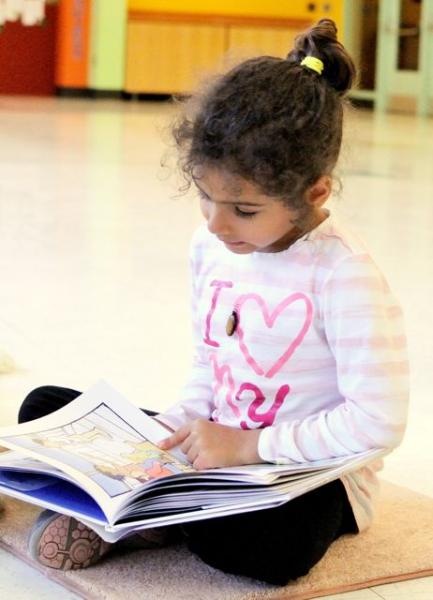
Hovering, Part II
March 7, 2014
No Third Grader Left Behind?
March 18, 2014
The website PBS Parents stated in a recent article that “the skills and behaviors children develop early in life lay a strong foundation for their adolescence and adulthood.” Part of this strong foundation relates to self-determination. “Self-determination is about being able to express choices, identify preferences and have a sense of independence or autonomy about our own lives.”
We know this does not mean that we allow our children to do as they please – it is about giving them the sense that they have choices and that their decisions regarding those choice have consequences that matter.
Another question - “How do you articulate your philosophy regarding self-determination in your family?” This is an important question. As with much of what research suggests about fostering independence and self-regulation in young children, being explicit about philosophy, expectations, consequences, and rewards is critical for all, and essential to those children who may not be able to intuit this information from the environment.
PBS Parents gives some strategies for fostering self-determination. My top three would be:
- (Explicitly) Provide your child ways to be independent within set boundaries.
- Offer choices and solicit your child’s preferences for objects and activities.
- Encourage your child’s expression at home (appropriate opinion-giving with dialog).
Children with learning disabilities and/or ADHD with executive dysfunction often fall into a dangerous trap of constantly being told HOW to do things, as well as WHAT, WHEN and WHERE to do them. While this may appear easier in the moment, it does a serious disservice to the child. We want and need to develop in children the metacognitive skills of thinking about and answering the questions:
- What needs to be done? (What’s the goal?)
- How will I accomplish the goal? What do I need to be able to accomplish it?
- What is the timeframe? (Will it take 5 minutes or 5 days?)
- What it will look like upon completion?

- What is the expectation for delivery?
- What could get in the way of accomplishing my goal? (What are the roadblocks that tend to get in my way of being successful?)
- What can I do when I have a roadblock in front of me? (What are some pre-established strategies that I can go to in order to remove the roadblock?)
- How will I reward myself when I achieve my goal? (Having a reward in mind can stimulate forward movement for some children.)
The earlier we begin to employ strategies to support successful independence, the easier it will be for children to develop self-determination within themselves and live the lives we want for them.
Blogger Barbara Hunter, MEd, shares her expertise in the use of technology to support learning. If you have questions, please contact Barbara at .
Image courtesy of Stuart Miles at FreeDigitalPhotos.net



